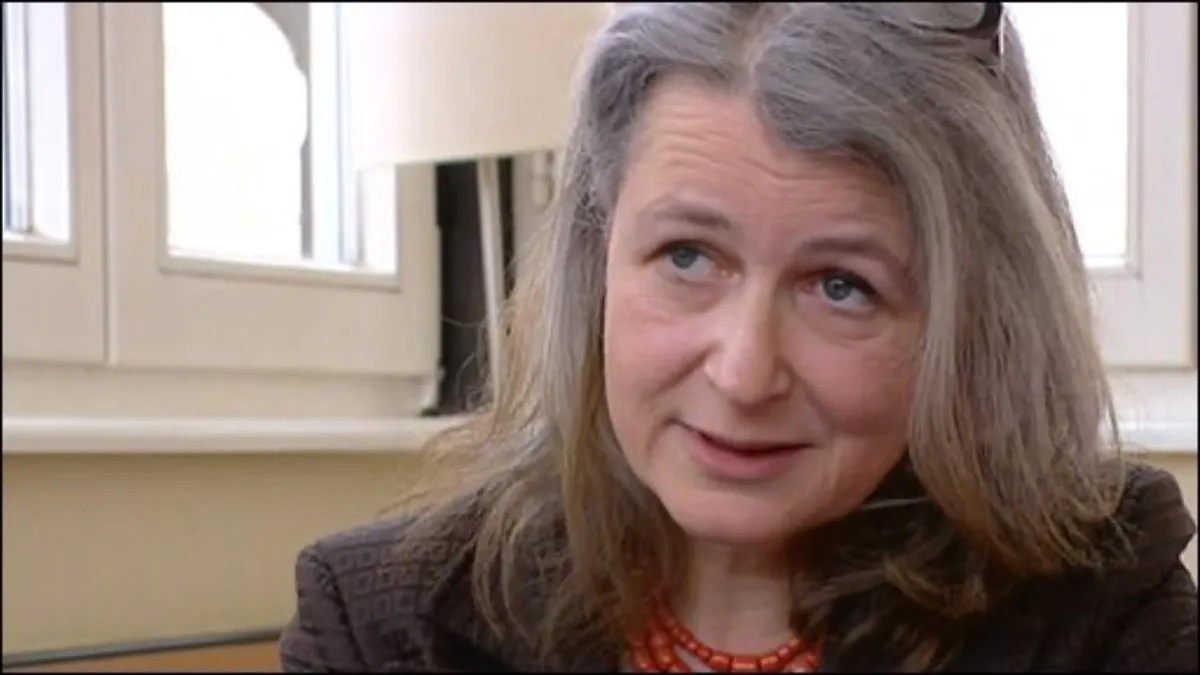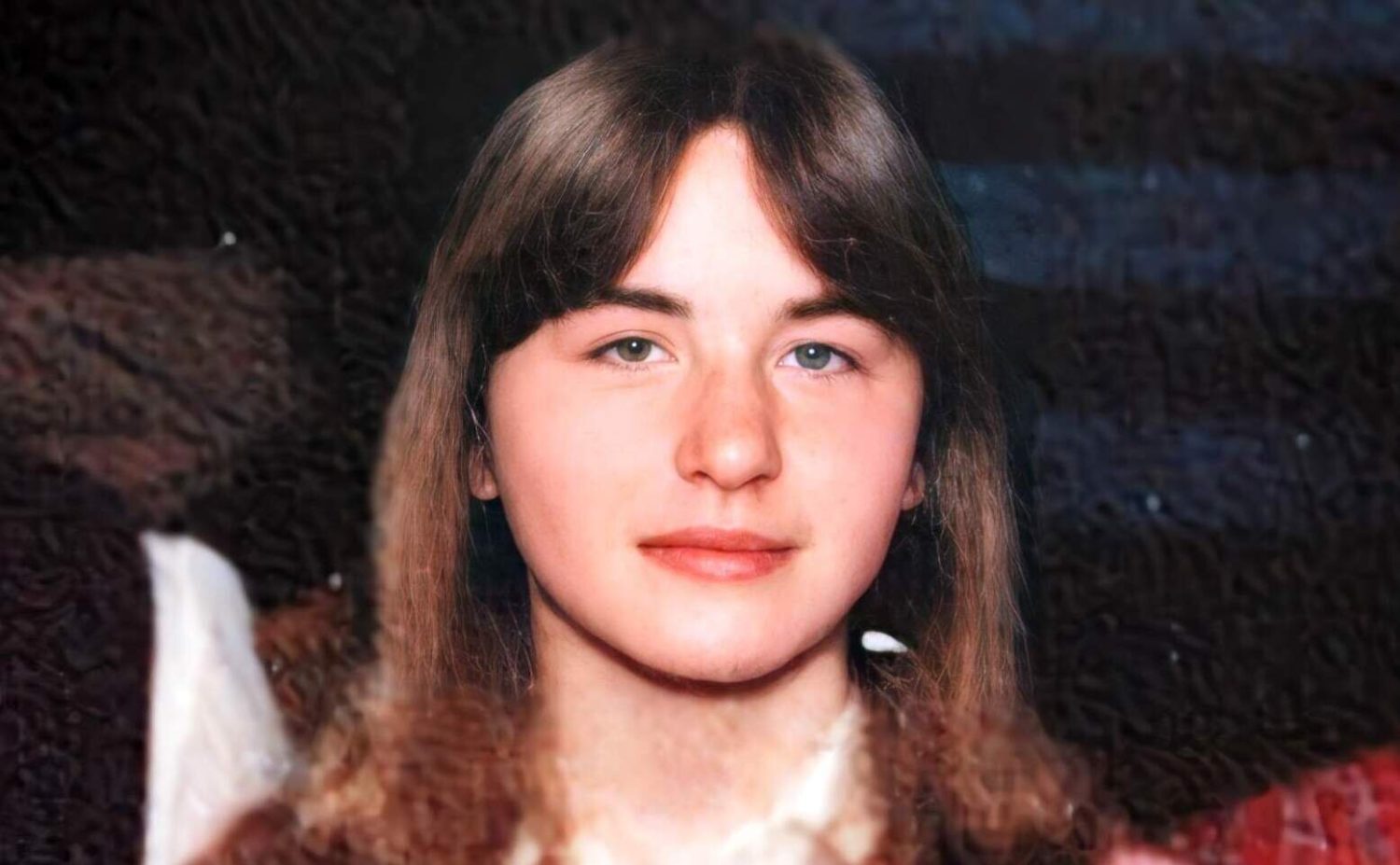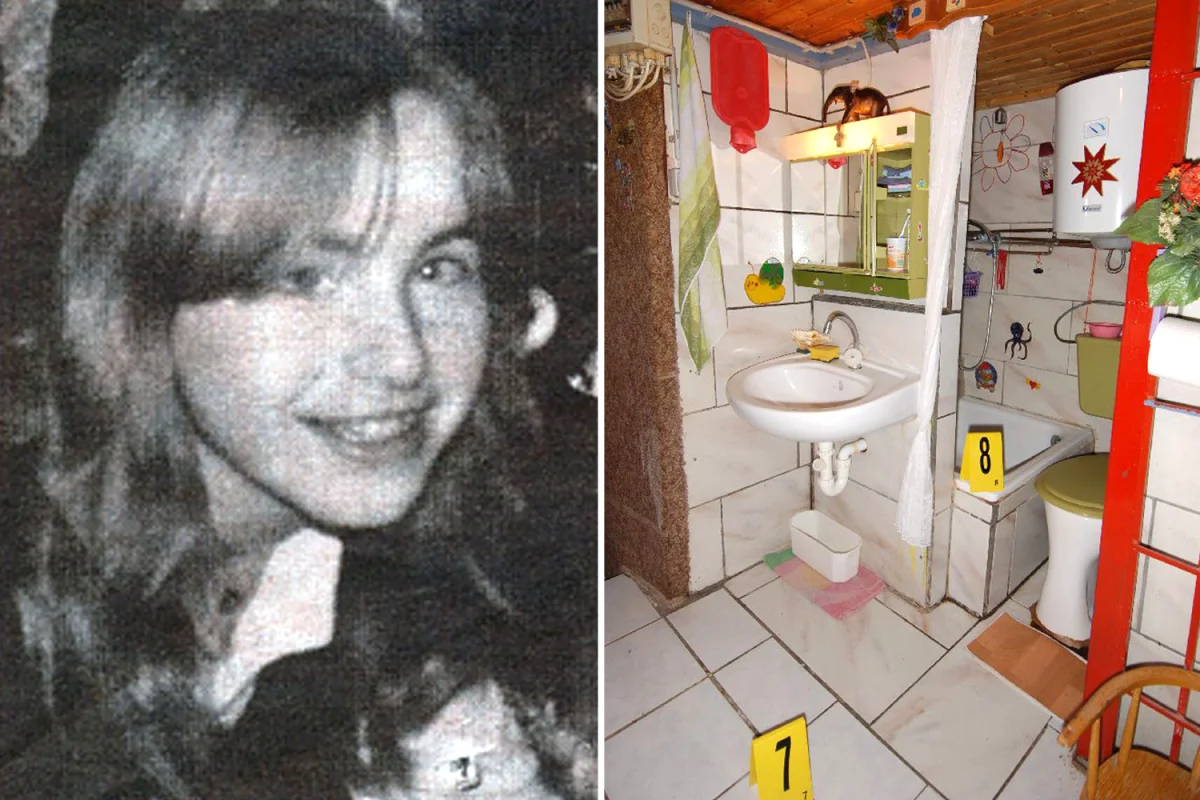Elisabeth Fritzl - A Story Of Endurance
The story of Elisabeth Fritzl, a woman whose existence was, in a way, hidden from the outside world for a very, very long time, came to light in 2008. This was a moment that, you know, brought to public attention an event of incredible sadness and immense personal courage. It all began when Elisabeth, born on April 6, 1966, shared her account with investigators in Amstetten, a city located in Lower Austria. Her revelation, in essence, described how she had been kept against her will, an experience that, quite frankly, defied ordinary comprehension.
What unfolded next, as a matter of fact, was a narrative that shocked people across the globe. Elisabeth Fritzl, a name that would soon become synonymous with unimaginable suffering and a profound will to survive, had spent a significant portion of her life, nearly a quarter-century, confined. This confinement, it turns out, was not just anywhere, but in a hidden space, a basement, situated beneath her own family's dwelling. Her father, Josef Fritzl, was the individual responsible for this long-term imprisonment, an act that, truly, left many speechless.
The details that emerged painted a picture of a life stolen, a youth taken away by acts that were, to be honest, beyond what most could ever imagine. This account aims to shed some light on what happened to Elisabeth Fritzl during those many years and, in a way, how her life has progressed since the time of her escape from this truly harrowing situation. It is a narrative that, arguably, speaks to the strength of the human spirit in the face of profound hardship.
Table of Contents
- Who is Elisabeth Fritzl? A Biographical Look
- What Happened to Elisabeth Fritzl? The Years of Captivity
- How Long Was Elisabeth Fritzl Held Captive?
- The Impact on Elisabeth Fritzl's Formative Years
- What Was the Nature of the Confinement for Elisabeth Fritzl?
- Elisabeth Fritzl's Children and Their Story
- How Has Life Been Since the Ordeal for Elisabeth Fritzl?
- The Legacy of Elisabeth Fritzl's Experience
Who is Elisabeth Fritzl? A Biographical Look
Elisabeth Fritzl, whose birth date is noted as April 6, 1966, became a figure known around the world, not for achievements, but for surviving an ordeal that, frankly, few could endure. She is, in essence, a survivor of an event that stands as one of the most shocking and deeply disturbing instances of personal violation, familial betrayal, and forced confinement in recent memory. Her story, as a matter of fact, highlights the extreme depths of human cruelty and, at the same time, the incredible resilience that some individuals possess.
Born in Austria, her early life, one might imagine, was like that of many others, until the moment her existence took a dark and unexpected turn. Her identity, for many years, was defined by the terrible circumstances she faced. Today, at 57 years of age, she carries the weight of those experiences, yet, in a way, she also represents a testament to the human capacity to persist. Her experience, as you know, has been documented and discussed widely, serving as a stark reminder of hidden horrors that can exist.
Personal Details and Bio Data of Elisabeth Fritzl
| Full Name | Elisabeth Fritzl |
| Date of Birth | April 6, 1966 |
| Current Age | 57 years old |
| Place of Birth | Austria |
| Key Role | Survivor of a significant case of abuse and captivity |
| Period of Captivity | 1984 to 2008 (24 years) |
| Captor | Josef Fritzl (her father) |
| Location of Captivity | Basement of family home in Amstetten, Austria |
| Number of Children Born in Captivity | Seven (one of whom passed away) |
What Happened to Elisabeth Fritzl? The Years of Captivity
The period between 1984 and 2008 marks a truly dark chapter in the life of Elisabeth Fritzl. During these years, her father, Josef Fritzl, held her in a basement, a concealed prison, beneath their home in Amstetten, Austria. This confinement, in essence, was not merely about keeping her in one place; it involved a horrific pattern of repeated sexual abuse and, sadly, resulted in her becoming pregnant multiple times. It’s a situation that, basically, represents an extreme violation of human rights and personal safety.
For over two decades, Josef Fritzl maintained this secret existence, keeping his own daughter, Elisabeth, hidden from the world. This was a life, you know, where she was subjected to unspeakable acts, robbed of her freedom, and forced to endure conditions that are almost impossible for most people to imagine. The details of this long-term abuse, when they finally surfaced, caused a widespread sense of shock and disbelief, revealing a hidden horror that had been unfolding right under the noses of others.
The duration of this terrible period, nearly a quarter of a century, meant that Elisabeth's entire adult life, from her late teens onwards, was spent in this forced confinement. She was, in a way, cut off from everything that defines a normal existence, including personal development, social connections, and the simple experience of daily life outside of that dark space. Her ordeal, apparently, stands as a chilling reminder of the capacity for evil within a family setting.
How Long Was Elisabeth Fritzl Held Captive?
Elisabeth Fritzl was, as a matter of fact, held against her will for an incredibly long stretch of time. The period of her forced confinement lasted for a full 24 years. This means that from the year 1984, when she was just a young woman, until 2008, she remained a prisoner in the basement of her family's dwelling. It’s a duration that, quite frankly, is difficult to fully grasp, representing a significant portion of a person's life, especially their formative adult years.
Think about that span: two decades and then some, spent in an underground space, cut off from sunlight, fresh air, and the regular interactions of daily life. This extended period of captivity meant that her world, for all intents and purposes, shrank to the confines of that hidden area. Her experience, in some respects, highlights the sheer endurance required to survive such a prolonged and cruel situation. It was, literally, a lifetime stolen from her, day by day, year by year.
The length of time she was held captive also meant that the abuse she suffered was, apparently, continuous and unrelenting. This wasn't a short-term nightmare; it was a sustained period of torment that, truly, had profound and lasting effects on her. Her survival through such a lengthy and terrible ordeal is, arguably, a testament to an inner strength that few can comprehend.
The Impact on Elisabeth Fritzl's Formative Years
The years that typically shape a young person's identity and future were, in a way, cruelly taken from Elisabeth Fritzl. Her formative years, that crucial time when individuals grow, learn, and establish their place in the world, were stolen by her father, Josef Fritzl. Instead of experiencing the freedoms and opportunities that come with young adulthood, she was, basically, locked away. This deprivation meant she missed out on developing in a healthy, natural environment.
Her father, a truly depraved individual, essentially caged her. This wasn't just a simple room; it was a purpose-built hiding place, a lair, constructed beneath their family home. For 24 years, this underground space became her entire world, preventing her from experiencing the outside. The absence of normal life during these critical years meant she was denied the chance to build relationships, pursue education, or simply live freely. It's a situation that, you know, speaks to an unimaginable loss of personal growth and development.
The impact of this prolonged confinement during her youth is, in some respects, immeasurable. It shaped her existence in ways that are hard for anyone on the outside to fully grasp. Her experiences during these years, quite frankly, left an indelible mark, influencing every aspect of her being. This period, arguably, represents one of the most tragic aspects of her story, as it robbed her of the chance to live a typical, unburdened life as a young person.
What Was the Nature of the Confinement for Elisabeth Fritzl?
The way Elisabeth Fritzl was held captive was, to be honest, particularly disturbing. She was kept in a basement, a space that her father, Josef Fritzl, had, in a way, turned into a private prison. This was not just any basement; it was a hidden area, apparently, designed to keep her out of sight and out of mind for an incredibly long time. The nature of this confinement was, truly, one of complete isolation and control.
Within this concealed space, Elisabeth was, unfortunately, subjected to repeated sexual abuse by her father. This terrible pattern of behavior continued for the entire 24 years she was held. The abuse was not just a single event; it was a continuous, horrifying aspect of her daily existence in that underground prison. It’s a reality that, you know, is almost too difficult to contemplate.
The confinement meant she was completely at the mercy of her captor. She had no means of escape, no contact with the outside world, and, basically, no hope of rescue for a very long time. This absolute lack of freedom and control over her own body and life defines the truly brutal nature of her imprisonment. Her situation, in some respects, represents a profound betrayal of the most fundamental human trust, especially coming from a parent.
Elisabeth Fritzl's Children and Their Story
During her long period of forced confinement, Elisabeth Fritzl gave birth to seven children. These children were, tragically, fathered by Josef Fritzl, her own captor and father. This aspect of the story adds another layer of profound sadness and horror to an already terrible situation. The fact that children were born into such circumstances, in a hidden basement, is, apparently, a detail that truly shocks the conscience.
One of these seven children, sadly, did not survive. This loss, you know, must have added immense grief to Elisabeth's already unbearable situation. The remaining children, born and raised in that confined space, had no experience of the world above ground until their eventual rescue. Their existence was, in a way, as hidden and controlled as their mother's.
The lives of these children, who were, basically, victims of the same terrible circumstances as their mother, are a testament to the enduring consequences of Josef Fritzl's actions. Their early years were spent in an environment devoid of sunlight, fresh air, and normal human interaction. Their story, truly, highlights the multi-generational impact of such a heinous crime and, in some respects, the challenges they would face adapting to a world they had never known.
How Has Life Been Since the Ordeal for Elisabeth Fritzl?
Since her liberation in 2008, there has been a general public interest in how Elisabeth Fritzl and her children have been living. While details are, understandably, kept private to protect their new lives, it is known that efforts have been made to help them adapt to a world they were, in a way, cut off from for so long. The transition from such a confined and abusive existence to one of freedom and normalcy is, truly, a monumental challenge.
Her life since the ordeal has, apparently, been focused on recovery and creating a new future, away from the public eye. The process of healing from decades of trauma, both for Elisabeth and her children, is, you know, a very, very long and complex one. They have, in essence, been given new identities and have been living in a protected environment to ensure their safety and privacy.
The goal for Elisabeth Fritzl and her family has been to live as normal a life as possible, given the extraordinary circumstances they endured. Their journey is, arguably, one of quiet resilience, as they navigate the complexities of life outside the basement. It’s a path that, to be honest, requires immense strength and continuous support, as they work to overcome the profound impacts of their past.
The Legacy of Elisabeth Fritzl's Experience
The case involving Elisabeth Fritzl stands as one of the most horrifying crimes in modern history. Her experience, in a way, brought to light the darkest aspects of human behavior and the potential for unimaginable abuse to occur in hidden spaces. It served as a stark reminder that even within what appears to be a normal family setting, terrible secrets can, apparently, be concealed for decades.
Elisabeth Fritzl's story, as a matter of fact, became a focal point for discussions about child protection, domestic abuse, and the psychological impact of long-term captivity. It prompted questions about how such an extensive crime could remain undetected for so long, prompting authorities and communities to consider how they might prevent similar situations. Her ordeal, you know, truly resonated across the globe.
While the details are deeply disturbing, Elisabeth Fritzl's survival is, in some respects, a testament to the human spirit's capacity for endurance. Her story, though incredibly tragic, also serves as a powerful reminder of the importance of vigilance and the need to protect the most vulnerable among us. It’s a narrative that, quite frankly, will likely continue to be studied and discussed for its profound implications on human understanding of trauma and resilience. The documentary "Girl in the Basement," which, in a way, follows the true story of "Sara" (representing Elisabeth Fritzl) and her kidnapping, further illustrates the impact of her experience. In that portrayal, "Don" (Josef Fritzl) lured "Sara" when she was, apparently, 18 years old in August of 1984.
This article has explored the profound and deeply disturbing story of Elisabeth Fritzl, from the moment her captivity was revealed in 2008 to the details of her 24-year imprisonment by her father, Josef Fritzl. We have looked at her personal background, the nature of the abuse and confinement she endured in the basement, and the tragic circumstances of her children born during that time. The piece also touched upon the immense impact on her formative years and how her life has progressed since her liberation, concluding with a reflection on the lasting legacy of her experience as one of modern history's most shocking cases of abuse and survival.

The Shocking Story Of Elizabeth Fritzl: A Life Behind Walls

Elisabeth Fritzl: The Girl Who Spent 24 Years In Her Father's Prison

Elisabeth Fritzl Paparazzi